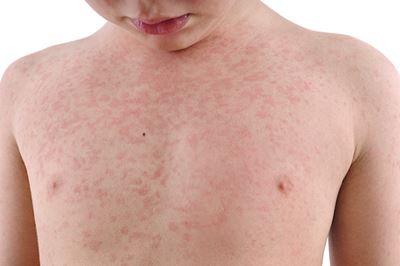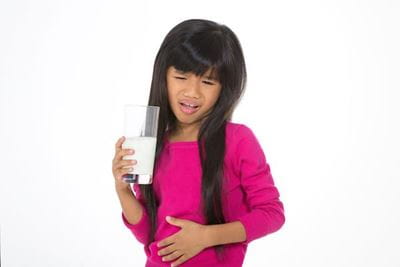How to know when a child is having an allergic reaction to food
Food allergies can be a scary thing. If you have a child who suffers from food allergies, you know just what I mean. If you’re wiping your brow and muttering a silent thank-you that you don’t have to deal with food allergies in your household, wait just a minute. It’s true that the majority of food allergies are diagnosed in early childhood, but what you may not know is that about 1 in 4 severe reactions that happen in schools involve children with no known history of food allergy.
This means that parents who had no idea a food allergy would affect their lives suddenly have a major medical issue to deal with. Food allergies have become so common in kids, affecting roughly 1 in 13 children or an average of 2 kids per classroom, you certainly will have some contact with a child who has a severe allergy. If you’re a chaperone for a field trip, hosting kids at your home for a birthday party or a playdate, volunteering at your child’s school or attending your child’s sporting event, there is that chance that a child will have a severe reaction to something they’ve eaten, whether or not they’ve ever been diagnosed with a food allergy.
That’s why it’s important that as a parent or caregiver you’re aware of what it looks like when a child has an allergic reaction to food. Recognizing a serious medical issue is the first and arguably the most crucial step in getting help for the person in need.
Know the signs and symptoms of allergic reactions
Mild symptoms that may occur (according to Food Allergy Research and Education):
-
Hives (reddish, swollen, itchy areas on the skin)
-
Eczema (a persistent dry, itchy rash)
-
Redness of the skin or around the eyes
-
Itchy mouth or ear canal
-
Nausea or vomiting
-
Diarrhea
-
Stomach pain
-
Nasal congestion or a runny nose
-
Sneezing
-
Slight, dry cough
-
Odd taste in mouth
-
Uterine contractions
Severe symptoms (one or more may occur):
-
Obstructive swelling of the lips, tongue, and/or throat
-
Trouble swallowing
-
Shortness of breath or wheezing
-
Turning blue
-
Drop in blood pressure (feeling faint, confused, weak, passing out)
-
Loss of consciousness
-
Chest pain
-
A weak or “thread” pulse
-
Sense of “impending doom”
Recognize the unique ways in which children describe their experience

Looking at the list above, you may nod in agreement and think to yourself, “Okay, if a kid has trouble swallowing or an itchy mouth or ear canal, I’ll remember that’s a sign of a food allergy.”
But, what if a kid cannot describe his symptoms that way? What if he doesn’t know to express to you the odd sensations he’s having? Will you be able to recognize that he is suffering from a food allergy despite his inability to describe his physical symptoms well?
You’ll be able to see some of these things with your own eyes- red splotches on the face known as hives, sneezing, swelling of the lips, vomiting- but you’ll also want to listen and ask questions to the child because many of the symptoms are sensations that he may feel but that you cannot see. You don’t want to lose precious moments when you could be getting help because you didn’t understand what the child was trying to communicate.
Very young children may:
-
Put their hands in their mouths
-
Pull or scratch at their tongues
-
Have a change in their voice such as hoarseness or squeakiness
-
Pull at their ears
-
Have slurred speech
-
Cry or exhibit fear or panic due to the unfamiliar feeling
Older kids may describe the sensation by saying something like this:
-
"This food is too spicy."
-
"My tongue is hot [or burning]."
-
"It feels like something’s poking my tongue."
-
"My tongue [or mouth] is tingling [or burning]."
-
"My tongue [or mouth] itches."
-
"It [my tongue] feels like there is hair on it."
-
"My mouth feels funny."
-
"There's a frog in my throat."
-
"There’s something stuck in my throat."
-
"My tongue feels full [or heavy]."
-
"My lips feel tight."
-
"It feels like there are bugs in there." (to describe itchy ears)
-
"It [my throat] feels thick."
-
"It feels like a bump is on the back of my tongue [throat]."
*Lists of symptoms and descriptions adapted from Food Allergy and Research Education (FARE)

If a child has been previously diagnosed with a food allergy and experiences symptoms, follow your doctor’s instructions to treat the allergic reaction. If you haven’t already, be sure to work with your doctor to develop a Food Allergy and Anaphylaxis Care Plan so that each caregiver knows what to do for your child in case of an allergic reaction.
If a child is experiencing a first-time event with a food allergy, get medical help. Mild symptoms are usually treated with an antihistamine, but if a child has even mild symptoms in more than one body system (as an example, they have hives and also nausea and vomiting = 2 body systems) it is a serious allergic reaction and medical help is needed. Severe symptoms indicate a life-threatening situation- administer epinephrine if available and call 911.
As food allergies become more and more common, it’s helpful for every parent and caregiver to be able to recognize when a kid is suffering from a food allergy. Only then will you be able to get the child the help he needs.







